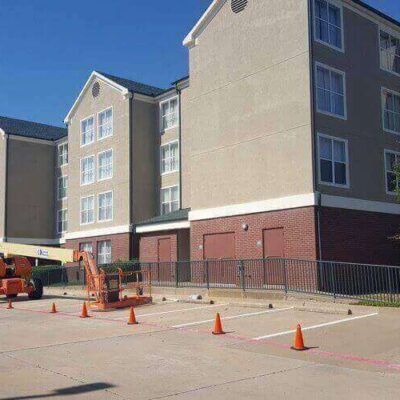Introduction: Why Permits Matter in Brampton Renovations
Planning a home renovation can be exciting—new floors, updated kitchens, maybe even an extra room. But before you grab a hammer or call a contractor, there’s one essential step you can’t afford to overlook: permits. Especially in Brampton, where strict building codes and municipal by-laws govern almost every aspect of construction, getting the proper permits is critical.
Skipping the permit process isn’t just risky—it’s potentially costly. Imagine redoing your beautiful kitchen, only to have the city demand you tear it down due to compliance issues. Whether you’re a first-time homeowner or a seasoned investor, understanding the permit process is essential for a successful Home Renovation Brampton or Kitchen Remodeling Brampton project.
1. What Renovation Projects Require a Permit in Brampton
Not every home upgrade requires a permit—but many do. The general rule is: if you’re altering the structure, systems, or layout of your home, you likely need permission from the City of Brampton.
Common renovations that require permits:
- Removing or adding load-bearing walls
- Building home additions or sunrooms
- Constructing or expanding decks higher than 24 inches
- Installing or relocating plumbing and electrical
- Finishing a basement if adding a bathroom or bedroom
- Kitchen Remodeling Brampton projects involving walls or utilities
Projects that typically don’t require permits:
- Painting, flooring, or cosmetic work
- Replacing cabinets (unless you’re altering plumbing or structure)
- Installing new countertops
Always check with the city before assuming your project is minor. Unpermitted work could delay property sales, complicate insurance claims, or result in fines.
2. Steps to Apply for Home Renovation Brampton Permits
Applying for a renovation permit might sound intimidating, but it’s manageable—especially if you follow a step-by-step approach.
How to apply:
- Prepare your plans: This includes drawings, floor layouts, and material specs.
- Submit your application: Through the City of Brampton’s online permit portal.
- Include supporting documents: Site plans, zoning certificates, etc.
- Pay the fee: Costs vary depending on the project’s size and scope.
- Wait for approval: The city will review your submission for compliance.
For Home Renovation Brampton permits, it’s essential to double-check zoning regulations, especially for additions or secondary units. If you’re unsure, the city has planning advisors available.
Pro Tip: Hiring a renovation professional can simplify this entire process—they usually handle the paperwork and ensure your plans meet city standards.
3. Permit Costs and Approval Timelines
Let’s talk numbers—because time and money are always top of mind during a renovation.
Typical permit fees in Brampton:
- Minor renovations: Around $100–$200
- Basement finishing: $250–$400
- Additions: $10–$15 per square meter
- Plumbing permits: $100–$200, depending on fixtures
Approval timelines:
- Small projects: 5–10 business days
- Large or complex projects: 2–6 weeks or more
Delays happen if:
- Your application is incomplete
- Plans don’t meet zoning or building codes
- You’re working on a heritage property or floodplain
Getting permits for Kitchen Remodeling Brampton projects might be quicker if you’re not moving walls or plumbing, but it still pays to plan ahead.
4. Common Mistakes in Kitchen Remodeling Brampton Projects
Kitchens are one of the most popular renovation projects—and one of the easiest to get wrong without a permit.
Frequent permit-related mistakes:
- Skipping plumbing permits when moving sinks or dishwashers
- Assuming electrical upgrades don’t need oversight
- Removing walls without checking if they’re load-bearing
- Installing gas appliances without licensed technicians
These errors can lead to:
- Failed inspections
- Hefty fines
- Delayed home sales
- Safety risks like leaks or fires
If you’re planning Kitchen Remodeling Brampton upgrades, consult a contractor who understands local codes and how to secure the right permits upfront.
5. Understanding the Ontario Building Code for Home Renovation Toronto Projects
Though this guide focuses on Brampton, the Ontario Building Code (OBC) applies across the province—including for Home Renovation Toronto projects.
Key OBC requirements:
- Minimum ceiling heights for finished basements
- Proper egress windows for bedrooms
- Safe staircase dimensions and handrails
- Fire separation between units
Toronto adds its own bylaws—especially regarding laneway suites, secondary units, and lot coverage. Brampton has unique zoning as well, especially in newer subdivisions or developments close to conservation lands.
Local Insight: Just because a contractor did something “in Toronto” doesn’t mean it’s legal in Brampton. Always verify local rules.
6. When You Need a Structural Engineer or Architect
Some renovations are too complex for DIY drawings. If your renovation changes your home’s skeleton—like knocking out walls or adding a second story—you’ll need a professional.
When to hire a pro:
- Architect: For design-heavy projects or additions
- Structural engineer: If altering beams, footings, or supports
- Mechanical engineer: For HVAC overhauls or commercial conversions
A seasoned Home Renovation Brampton team will either provide these services in-house or have a trusted network of specialists.
Having stamped drawings from a certified professional not only speeds up permit approvals but also gives inspectors peace of mind that your project is safe and compliant.
7. How to Prepare Your Application for Success
The smoother your application, the faster your approval. Here’s how to avoid the dreaded “application returned” email.
Tips for a complete application:
- Include clear and scaled drawings
- Verify zoning compliance
- Use the city’s permit checklists
- Be honest about what you’re doing—even minor work needs proper documentation
If you’re applying for a Kitchen Remodeling Brampton permit, highlight plumbing or structural changes clearly in your floor plans. It saves time and avoids back-and-forth with city staff.
Bonus Tip: Submit everything digitally using the ePermits portal—it’s faster and easier to track.
8. What Happens During Inspections
After your permit is approved, your job’s not done. The city will inspect your project at various stages to ensure it matches the approved plans.
Typical inspection stages:
- Pre-demolition (if applicable)
- Framing
- Plumbing rough-in
- Electrical rough-in
- Final inspection
The inspector will look for:
- Code compliance
- Safety standards
- Adherence to approved drawings
If something doesn’t pass, you’ll need to correct it and schedule a re-inspection.
Working with experienced Home Renovation Toronto contractors helps—most know what inspectors expect and can ensure everything’s ready before the visit.
9. Working With a Licensed Contractor for a Smooth Permit Process
A good contractor is your permit shortcut. They’ll know what documentation to prepare, who to talk to at city hall, and how to avoid unnecessary delays.
Why it matters:
- Avoids rework from incorrect applications
- Ensures you’re using code-compliant materials and methods
- Speeds up communication with inspectors and planners
If you’re planning a Home Renovation Brampton or Kitchen Remodeling Brampton project, don’t try to navigate the system alone. Hiring a reputable local company can save you stress, time, and money.
Conclusion: Get Expert Help with Your Brampton Renovation Permits
Home renovations are exciting, but permits are the unskippable step that ensures your project is legal, safe, and future-proof. Whether you’re tackling a Home Renovation Toronto project or adding a new kitchen in Brampton, understanding the permit process helps protect your investment and avoid unnecessary headaches.
From knowing what type of work needs approval to navigating Brampton’s by-laws and inspections, this guide gives you the foundation to build confidently. Still feeling overwhelmed? Partner with a local renovation expert who understands the process inside and out.




